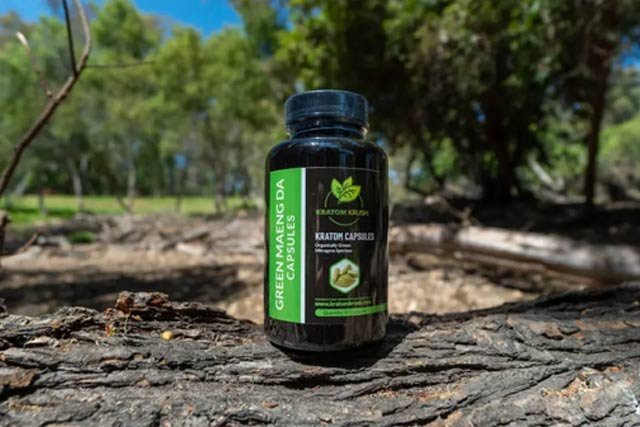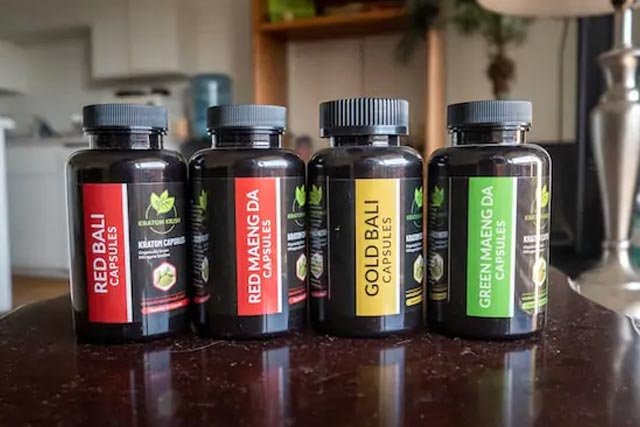Very few people experience negative cardiac effects as a consequence of using kratom, and those who do usually suffer from a preexisting heart condition. If you are a healthy individual, you have nothing to worry about. I (and many other people I know) have been using kratom for years without cardiac damage. Moderation is key!
Another important step to protect your heart is to choose a reliable company that avoids using harmful chemicals in its products. They provide lab results that test for heavy metals and avoid pesticides and other harmful chemicals.
Health concerns continue to swirl around the world of kratom, with some wondering if products can cause short or long-term health damage. I have trawled through the research and am here to put your kratom worries to rest.
Kratom does pose risks to heart health, but there is no need to panic. The substance and its alkaloids are not necessarily harmful – much depends on your use. Possible serious side effects include heart attacks, high blood pressure, and abnormal heart rhythms (arrhythmia), but these are extremely rare.
I’ll break down all the latest science in this post and bring you up to speed on the health risks of kratom. I’ll also provide advice regarding the safe use of kratom and what to do if you encounter any problems.
Want to know more about kratom’s effects on your body? Don’t miss these posts!
1. Will Kratom Damage Your Heart?

A big question with no easy answer! The vast majority will have no cardiac issues with kratom, while others may experience mild or nasty side effects.
If you already suffer from heart problems, that may increase your risk of problems. Age, weight, and pre-existing health conditions could also influence how your heart responds.
Unfortunately, the science is not extensive. Kratom has ballooned in popularity over recent years, and millions of Americans now use kratom products.
But much remains unclear about the effects and risks of kratom alkaloids such as mitragynine and kratom extracts as a whole.
Researchers at Texas A&M University-San Antonio published a fascinating study in 2022, analyzing the adverse health effects of kratom by mining social media data from Reddit and Twitter.
They found that heartburn was responsible for 10% of negative posts about kratom.
Heartburn is not typically a major issue unless symptoms are frequent and severe. The scientists did not report any other heart-related problems in the top 10.
A highly cited study featured in Drug and Alcohol Dependence back in 2017 reported that 0.71% of kratom users experienced heart palpitations, while 0.28% suffered from high blood pressure (hypertension).
In rare cases, US health authorities have linked kratom to serious health issues and even death. Unsurprisingly, given kratom’s unapproved and unregulated status, these authorities have published strong warnings to the general public about its potential risks.
Indeed, between 2011 and 2017, about 1800 reports to poison control centers in the United States were due to kratom use.
But I just cannot ignore the reality that millions are using kratom with no problems at all. Nothing is 100% safe, and there are plenty of prescription drugs out there with awful side effects.
Kratom may not be perfect, but that does not mean it is particularly risky. Even regular consumption of caffeine and nicotine, two of the most widely used drugs in our society, can contribute to heart problems.
Read More: “Kratom With Coffee: Can You Mix The Two?”
Furthermore, the lack of regulation in the kratom industry heightens the risk of heart damage. The Wild West nature of the market means there are numerous online vendors selling products that are not third-party tested or approved.
These products could contain anything. I would not be surprised if dodgy, untested kratom is behind some cases of serious illness.
And let’s not forget that because kratom is unapproved as medicine, there are no official dosage guidelines.
Abuse of many substances could cause heart damage. Until kratom users have clarity, this problem will sadly be worse than it needs to be.
2. Does Kratom Raise Your Blood Pressure?

No studies have focused on kratom and the effects its alkaloids have on blood pressure. So, I will expand on the study that I referenced from Drug and Alcohol Dependence, where high blood pressure (aka hypertension) was reported in around 1 in 400 kratom users.
High blood pressure has notoriously few symptoms – it is possible kratom was having a more significant effect.
That considered, being overweight, a lack of exercise, smoking cigarettes and an unhealthy diet can all contribute to high blood pressure.
If one or more of these apply to you, then you may be at greater risk of a raised blood pressure from kratom. Once again, it’s easy to pin the blame on kratom, but that doesn’t mean we should.
Out of the 1800 kratom reports to poison control between 2011 and 2017, “about half” resulted in “seizures and high blood pressure”, according to Mayo Clinic.
Annoyingly, there is no further breakdown of these figures nor an indication of the dosages these people took.
Perspective is also crucial with these numbers. This works out to around 250 reports a year, with a little over 100 for seizures and high blood pressure. Considering that millions of people use kratom, that is a minuscule number.
Interestingly, some people on social media have suggested the opposite and that kratom triggers low blood pressure. Reddit user /u/cuddlemuffin911 proposed that kratom was leading to dehydration, which in turn caused their low blood pressure.
You’ll find numerous anecdotes about kratom online, but that’s all they are. Without thorough scientific studies, we simply won’t know for sure.
Of course, kratom may genuinely be causing high blood pressure in some and low blood pressure in others!
Fit and healthy people with no blood pressure issues can probably go ahead and take kratom with confidence. But if high blood pressure is a recurrent issue in your life, kratom might not be for you.
Even anxiety can trigger a spike in blood pressure. If you take kratom but have concerns about blood pressure, you might bring on the problem you’re trying to avoid.
3. Can Kratom Cause Arrhythmia?

Kratom is linked to arrhythmia in rare cases.
An arrhythmia is defined as an abnormality in the heart’s rhythm. This can mean your heart beats too quickly, slowly, or irregularly.
Heart arrhythmias are not usually dangerous, although they are certainly a bit scary – especially if you haven’t suffered before.
But in some instances, an arrhythmia can cause severe symptoms, and in rare cases, it can be fatal.
In 2014, the Public Library of Science published a paper exploring whether kratom alkaloids are cardiotoxic, focusing largely on the dominant mitragynine.
They found that these compounds may increase the risk of torsades de pointes, a rare type of abnormal heart rhythm that can lead to cardiac arrest.
Torsades de pointes is increasingly on the radar of scientists and is the reason why several prescription drugs have been taken off the market since the 1990s.
More recently, a study in the Journal of the Intensive Care Society looked at a death attributed to kratom toxicity. The patient experienced a “brief period of ventricular arrhythmia” before his death.
Researchers determined that this was a “possible case” of kratom toxicity causing cardiorespiratory arrest.
Yet the fact I have to dig out obscure studies and isolated case reports is another sign of just how poorly understood kratom’s effect on the heart is.
Very few people experience arrhythmias due to kratom risk. But we don’t know whether this is a one-in-a-million risk or somewhat higher. Also, the mitragynine in kratom may exacerbate an undiscovered heart problem rather than create one.
4. What to Do if You Notice Any Kratom Symptoms in Your Heart

The first thing you should do if you spot any kratom-related heart problems is to stop taking kratom. If you find that kratom provides much-needed relief in other areas, you could be tempted to ignore these side effects.
But this risks making any heart problems worse, setting the foundations for more severe symptoms and perhaps long-term complications.
Next, you should consult your doctor. If kratom has caused heart problems, you may need treatment. Or you may be advised to stop taking kratom so your heart can recover.
I understand you may have reservations about contacting a health professional about kratom.
The mainstream medical community tends not to look favorably on kratom since kratom does cause serious illness in rare cases. But your doctor thoroughly understands your medical history and will know if you have any health issues that put you at greater risk.
Read More: “How Much Kratom Should You Take?”
A possible exception: If you find kratom extremely helpful and are only experiencing very mild heart issues, consider lowering the dosage before taking further action. You may just be consuming more than your body can handle.
5. How to Take Kratom to Minimize Side Effects

I want to get away from the doom and gloom and finish positively! I’ve come at you with a lot of hard-hitting stuff on the heart risks of kratom.
But I want to stress once more that these problems are rare. Moreover, abuse of kratom is no doubt behind many of the reported heart problems.
With a sensible and cautious approach, I’m confident kratom can alleviate your health problems while keeping side effects to a minimum.
It’s important to start slowly when trying any new kratom product, but even more so if you’re taking it for the first time. Whether you’re using red, white, or green leaf kratom, begin with just a couple of grams.
This is a low dose, but enough for you to start reading how your body and heart take to it. After getting familiarized, you can move upwards in 0.5 or 1g increments. As a general rule of thumb:
- Low dosage: 2 to 4g
- Moderate dosage: 4 to 7g
- High dosage: 7g and upwards
5.1. Kratom Capsules

You may find kratom capsules a better introductory product than powder as the dosages are precisely measured and clearly labeled.
You also kratom’s harsh bitter taste.
But if you don’t like capsules or need fast-acting relief, kratom powder and a measuring spoon or scales should be fine.
Maintaining a journal of your kratom sessions is a great trick for staying safe. You may be tempted to keep a mental note of how you react, but you cannot go wrong with cold, hard data.
I suggest noting down the strain, product type, your dosage, the time of day, the positive and negative effects, and anything else you may find useful!
It will be easier to troubleshoot any problems if you keep a journal. You may just need to reduce your dosage, or perhaps you’ve changed to a strain that produces different, less favorable effects.
I recommend avoiding alcohol and drug consumption when taking kratom. There’s little research on the safety of mixing kratom with other substances.
Read More: “The Truth About Mixing Kratom & Alcohol”
But kratom does have psychotropic, mind-altering effects. This could lead to problems if combined with other psychotropic substances, such as marijuana.
And last but not least: Buy from a reputable vendor. The best companies in the US kratom scene leave no stone unturned in proving their quality.
Third party independent lab testing a must. Never purchase from a company that looks shady or hides where they are sourcing their kratom.


